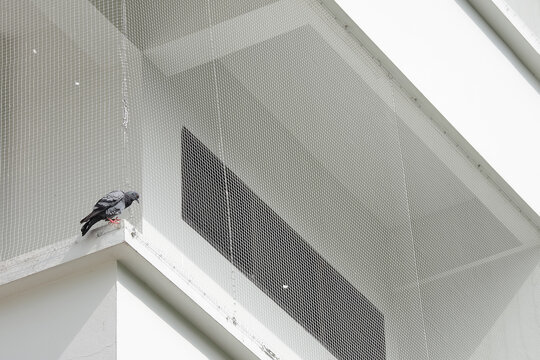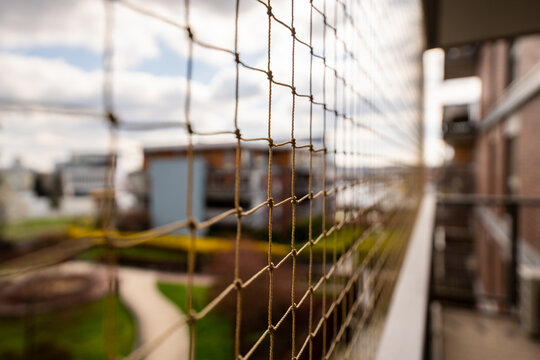Pigeons, often referred to as “rats with wings,” can become a significant nuisance when they decide to make your home or business their nesting ground. These birds can cause property damage, spread diseases, and create unsightly messes with their droppings. For those facing a pigeon problem, understanding effective strategies for pigeon pest control is essential. Let’s delve into the best practices for managing and removing these feathered pests from your environment.
Pigeons are adaptable birds that thrive in urban environments. They find rooftops, ledges, and eaves to be perfect nesting sites, leading to frequent human-pigeon conflicts. Their droppings are not only unsightly but also acidic, causing damage to buildings and monuments. Moreover, pigeons can carry diseases such as histoplasmosis, cryptococcosis, and psittacosis, which pose health risks to humans.
Why Pigeon Control is Necessary?
Pigeons reproduce quickly, and a small flock can rapidly turn into a large infestation. Without intervention, these birds can cause extensive property damage and contribute to health hazards. Effective pigeon control involves preventing pigeons from settling and nesting in unwanted areas, thus protecting your property and health.
Strategies for Pigeon Control
There are several methods to control pigeon populations, ranging from preventative measures to professional removal services. Here’s a comprehensive look at effective pigeon pest control strategies.
Read Related: Reasons for Using Bird Netting from a Trustable Manufacturer
Prevention is Key
The most effective way to control pigeons is to prevent them from nesting in the first place. Here are some preventative measures you can take:
Install Physical Barriers
Bird Spikes: Installing bird spikes on ledges and flat surfaces can deter pigeons from landing and nesting. These spikes are humane and effective, providing a physical barrier that pigeons cannot comfortably perch on.
- Bird Netting: For larger areas, bird netting can be an excellent solution. It prevents pigeons from accessing potential nesting sites, effectively reducing the possibility of infestation.
- Slope Building Features: Modifying ledges and other flat surfaces to a sloped design can make it difficult for pigeons to roost.
Implement Deterrents
- Visual Deterrents: Reflective surfaces, such as shiny tape or CDs, can scare pigeons away. Consider using decoy predators, like owls or hawks, to create an environment that pigeons find unwelcoming.
- Auditory Deterrents: Sound machines that emit distress calls or predator noises can be used to keep pigeons at bay. These devices should be used in conjunction with other methods for maximum effectiveness.
Habitat Modification
Reducing the availability of food and water sources is crucial. Ensure that trash bins are sealed, food waste is properly disposed of, and water sources are minimized. By making your property less attractive to pigeons, you decrease the likelihood of them settling.
Professional Pigeon Control Services
When DIY methods aren’t enough, it might be time to call in the professionals. Pigeon control services offer comprehensive solutions tailored to your specific needs.
Hiring a Pigeon Exterminator
A pigeon exterminator can assess the extent of the infestation and recommend effective strategies. They may use a combination of trapping, exclusion, and deterrent methods to manage the pigeon population.
Benefits of Professional Services
- Expertise and Experience: Professionals possess the knowledge and experience necessary to effectively handle pigeon infestations.
- Humane Solutions: Certified pest control companies use humane methods to manage and remove pigeon populations, ensuring compliance with local wildlife protection laws.
- Long-Term Solutions: Professional services often provide guarantees or follow-up visits to ensure that the pigeon problem is resolved for the long term.
Bird Control Solutions
In addition to pigeons, professional bird control services can address other avian pests. By utilizing integrated pest management techniques, these services can effectively manage multiple species, thereby ensuring a bird-free environment.
Legal Considerations in Bird Pest Control
It’s important to note that pigeons, like all birds, are protected under the Migratory Bird Treaty Act in many areas. This law protects birds from harm and requires that any control measures be humane and legally compliant.
Complying with Local Regulations
Before implementing pigeon control measures, familiarize yourself with local wildlife regulations. Some methods, such as trapping or relocating, may require permits or be restricted in certain areas.
Conclusion
Pigeon pest control is an essential task for maintaining the safety, cleanliness, and value of your property. Whether you choose DIY methods or enlist professional pigeon control services, acting promptly and effectively is key to managing pigeon populations. By understanding and implementing these strategies, you can protect your property from the challenges posed by these urban birds. Remember, prevention is the best cure, and timely intervention can save you from the costly consequences of pigeon infestations.





